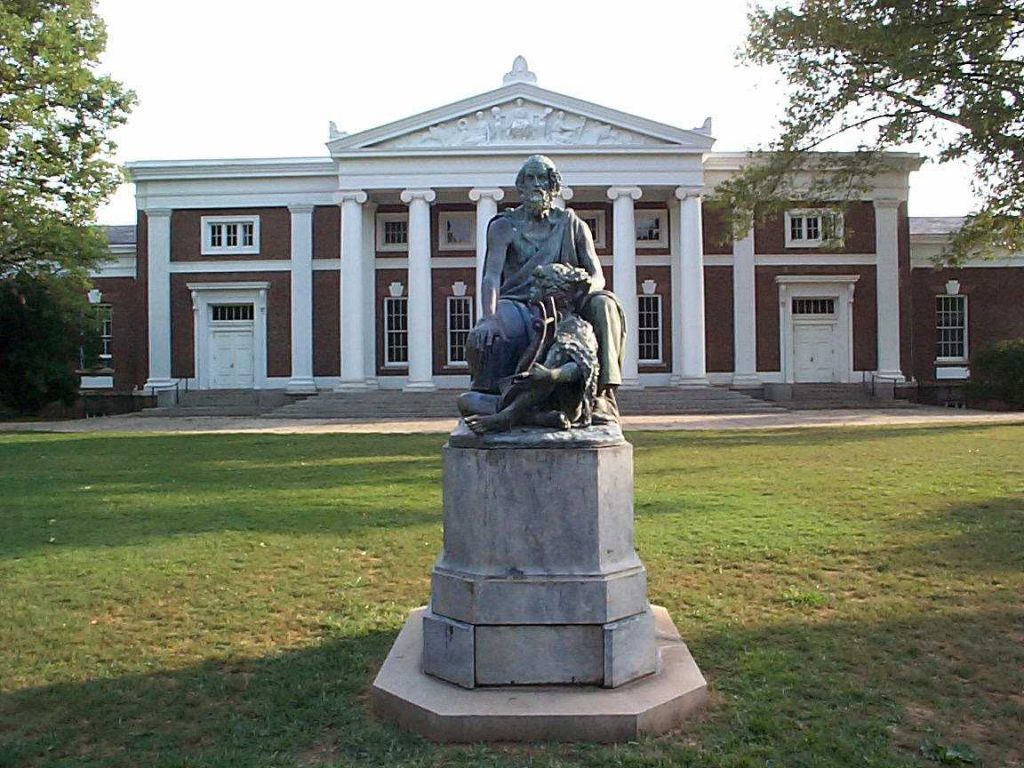

Over the past couple of years, I have been observing with fascination the media “coding” of certain topics and key terms as “right.” The latest of these efforts, at least when it comes to Greco-Roman Classics, is Orlando Reade’s The Nation essay this week: “Why Is the Right Obsessed With Epic Poetry?” A taste from his essay, which includes references to the epic reading habits of Elon Musk, Jordan Peterson, Peter Thiel, Mark Zuckerberg, and Usha Vance:
“At some point in antiquity,” Musk’s musing about the Trojan exiles continued, “a few ships of very competent soldiers (with almost no women) landed on the coast of Italy. Where did they come from?” Without realizing it, Musk had reinvented the plot of Virgil’s epic The Aeneid, whose protagonist sails from war-ravaged Troy to a land where his descendants would later found Rome. Historians are skeptical that this has a basis in fact, but it was useful propaganda for Augustus Caesar, who established himself as Rome’s first emperor while Virgil was writing his poem. By retelling the myth that the city was founded by one great man, The Aeneid seemed to confirm that Rome should be ruled by one emperor rather than by its citizens. In recent years, epics have played a similar role for the American right.
Epics have often shored up empires. After Virgil’s death, Augustus Caesar ordered that his unfinished poem be preserved, against the poet’s wishes. Since then, many poets have recycled Homer’s and Virgil’s materials to create new epics written to advance their own ambitious nations. And later emperors used ancient epics to glamorize their campaigns. Alexander the Great had The Iliad as his bedside companion. Napoleon, complaining that “the others were taken,” brought the pseudo-medieval Scottish epic of Ossian on his doomed expedition to Moscow. Epics don’t only glorify the present; they also offer grand and terrible visions of the future. In 1968, the British politician Enoch Powell quoted The Aeneid in a notorious speech prophesying that immigration would cause “rivers of blood.” This capacity to speak to the future makes the genre a powerful political tool.
It is doubtless true that the individuals mentioned are quite influential in various corners of the conservative world. It is also true that their interpretations of epic are rather ignorant. The problem is, articles of this sort only contribute further to the default coding of certain topics as “conservative”–and therefore, by implication, bad. For instance, consider the following striking portions in the very broad definition of conservatives in the Inside Higher Education piece last month about UNC-Chapel Hill’s new School of Civic Life and Leadership:
What’s considered ‘conservative’ is debatable and evolving… And in another sense of ‘conservative,’ it includes scholars who study and teach about ancient philosophers and the Western literary canon.
There, in the final sentence of the definition (again, very broad–I only quoted a tiny, most relevant, selection), is the clear statement: scholars who study “the Western literary canon” must be conservatives–and therefore subject to more than mere soupçon of disapproval. Needless to say, it doesn’t get more “Western literary canon” than Homer, Vergil, and other well-known epics. If all these lunatic radicals are reading epic and taking it seriously, well, maybe we all just need to back away from it while we still can.
But here’s the thing. These kinds of attacks on conservatives, which conflate thinkers a writer doesn’t like with the subjects that those thinkers study, are not helpful and are unnecessarily reductionist. First of all, at the most obvious level, there are plenty of conservative thinkers who study Homer and the ancient epic tradition, who interpret it very differently from Jordan Peterson or, for that matter, Musk. There is, in fact, a real Classical renaissance among conservative intellectuals right now, as seen most clearly from the blossoming of the Classical education movement in the Christian schooling and homeschooling world, and in the rising popularity of Great Books curricula in colleges. But none of the epic readers Reade mentions in his piece have any expertise in antiquity or in literature of any period. They just happen to be very famous for saying very outrageous things about, well, anything that comes into their heads. And second, believe it or not, there are excellent Homerists out there who are not conservatives.
Still, perhaps to say that there are some normal, sane people out there still reading Homer would be too boring to print.
Homer Simpson?